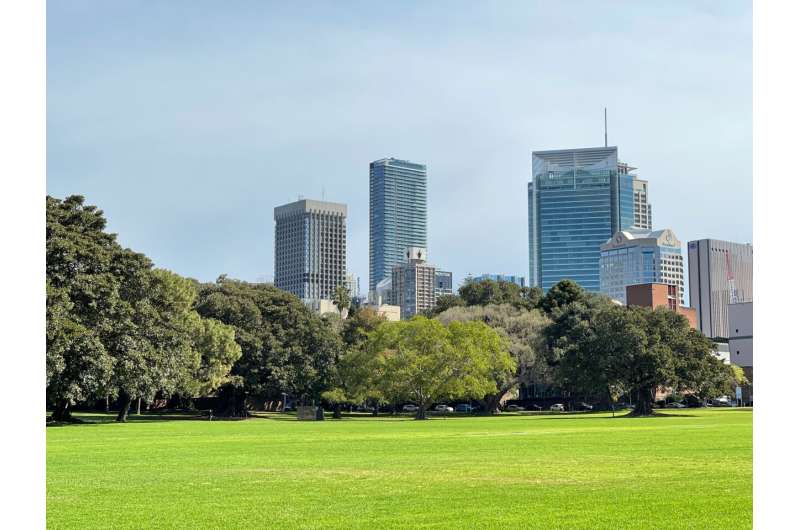
Credit: Unsplash/CC0 public domain
Abundant green space in urban areas is linked to lower heat-related illnesses and deaths, as well as better mental health and wellbeing, according to a systematic review of available research published in the open access journal BMJ opened.
Green space can help offset the adverse health effects of high temperatures, the researchers conclude.
In recognition of the harmful heat-related impacts of increasing urbanization and climate change, one of the targets of the UN Sustainable Development Goals is to provide universal access to safe and accessible green and public spaces, especially for vulnerable groups, such as children, older people, and those living in long-term conditions, by 2030.
Despite an extensive body of research on the overall beneficial effects of green spaces, their effects on heat-related health risks remain poorly understood, the researchers say. In an attempt to close this knowledge gap, they looked at the effects of green zones on deaths and ill-health in urban areas around the world, based on relevant published research.
They included content published in English between January 2000 and December 2022, and reviewed 12 studies from an initial wave of more than 3,000 studies from Hong Kong, Australia (four), Vietnam, the US (three), South Korea, Portugal and Japan.
These include epidemiological, modeling and simulation studies, as well as experimental research and quantitative analyses.
The research found that urban green spaces, such as parks and trees, can potentially help offset the adverse health effects of high temperatures.
In areas with more green space, the number of heat-related health problems and deaths is lower than in areas with less green space, especially among vulnerable groups.
And urban greenery is associated with better mental health and wellbeing, which could also help mitigate the negative health effects of high temperatures.
The researchers point out that the different methodology and design of the included studies made pooling the results for further data analysis impossible, and while the review found links between urban green spaces and health outcomes, a causal link cannot be established .
“It is important to note that more research is needed to fully understand the magnitude of the impact of urban green space on heat-related morbidity and mortality, and how this interacts with other factors such as air pollution and socio-economic status,” they emphasize. .
But they nonetheless conclude, “urban green spaces play a critical role in mitigating heat-related health risks and offer a potential urban planning strategy to address climate change and improve public health.”
More information:
Health impact of urban green spaces: a systematic review of heat-related morbidity and mortality, BMJ opened (2024). DOI: 10.1136/bmjopen-2023-081632
Quote: Abundant urban green space linked to lower heat-related illnesses and deaths (2024, October 22), retrieved October 22, 2024 from https://medicalxpress.com/news/2024-10-abundant-urban-green-space-linked. html
This document is copyrighted. Except for fair dealing purposes for the purpose of private study or research, no part may be reproduced without written permission. The content is provided for informational purposes only.
 Healthy Famz Healthy Family News essential tips for a healthy family. Explore practical advice to keep your family happy and healthy.
Healthy Famz Healthy Family News essential tips for a healthy family. Explore practical advice to keep your family happy and healthy.


